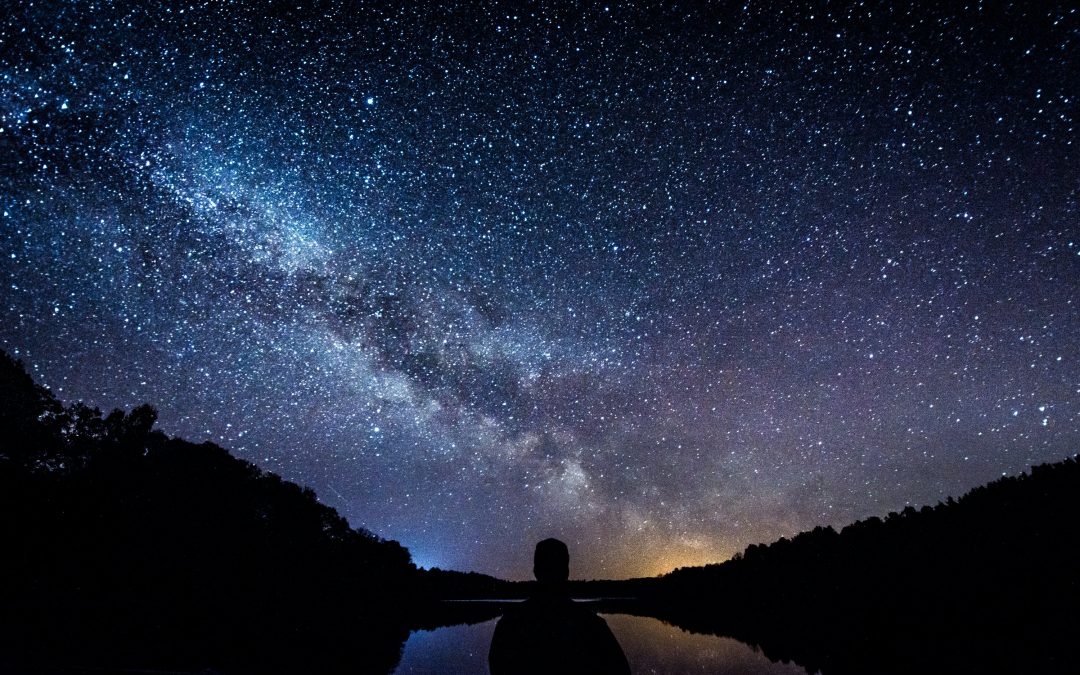Vedic and Western Astrology: Our Life in the Stars with Dennis M. Harness, Ph. D.
Dennis M. Harness, Ph.D. is a self-proclaimed “Neo-Vedic or East–West Astrologer,” a professional Vedic Astrologer and lecturer who received his doctorate degree in Counseling Psychology from the California Institute of Integral Studies in San Francisco, California. For more than 30 years, Dennis has studied both Eastern and Western astrological techniques. Read on to learn more, and then study with Dennis at the Sedona Yoga Festival, March 14–17! Use code DENNIS10 for 10% off any pass.
Many of our participants are likely familiar with Western astrology and the tropical zodiac. What are the main differences between the Western and Vedic astrological systems?
I think the main difference between the two systems is that Western astrology, which is called tropical astrology, is based upon, and keeps us in touch with, the seasons; particularly the Solstice and Equinox points. Vedic astrology is more constellation-based, so it’s more of an astronomer’s view. For example, at night, if you go and look at Jupiter in the night sky, Western astrology would say that Jupiter now is in the sign of Taurus, the bull. But if you look at where Jupiter is in the night sky, you’ll see it’s right in the head of the ram in Aries. So there’s about a 23–24 degree difference between the two systems. One of the ways that the two systems connect is the aspects between the planets in both systems as well as the planetary transits.
In Vedic astrology, there’s much more emphasis on the Moon than the Sun sign. I’ve written a book titled The Nakshatras: The Lunar Mansions of Vedic Astrology, which describes the 27 divisions of the Hindu zodiac.
I trained in Western astrology and I consider myself a neo-Vedic astrologer in that I use the outer planets, Uranus, Neptune, Pluto, while many traditional Vedic astrologers don’t. For me, and this is just me personally, I think of Western astrology is like the waves on the ocean, and the Vedic system is more akin to the undercurrents, the riptides, the tsunamis in life.
Is Vedic astrology one of the Vedic sciences, like yoga or Ayurveda?
In Sanskrit, Vedic astrology is known as Jyotish, which translates to “the science of light,” bringing light into darkness. Vedic astrology can help to shed light, in a sense, in what path may be most fitting for a person’s spiritual development. For example, when in a person’s Vedic astrology chart Venus is really pronounced, you may see that person more connected with Bhakti yoga. Whereas if Saturn is strong, they may be more connected to karma yoga. Jupiter is somewhat connected with Raja yoga, because in India, Jupiter is called the guru planet. So in some ways, the planets are reflecting the different limbs of the Vedas, which is really cool.
Dr. David Fraley, a Vedic scholar who wrote one of the best books on Vedic astrology called The Astrology of the Seers, and included an entire section on these kinds of connections — particularly the chakra system and its connections to planetary energies.
So is Vedic astrology more scientifically-based?
Swami Sri Yukteswar, was a great Vedic astrologer, and was guru to Yogananda, the great saint who wrote Autobiography of a Yogi. Sri Yukteswar said it very eloquently: “A child is born at that moment in time that is in mathematical harmony with one’s soul karma. It reflect one’s unalterable past life’s and probable future results.”
I underline “probable,” because he said the message blazoned across the heavens at the moment of birth was not meant to emphasize fate, but was to arouse the soul to action or awaken the soul from slumber. So there is a mathematical, scientific aspect to it. And again, because Vedic astrology is astronomically based, there are in some ways more of a connection with a telescopic view of where the planets were.
Western astrology — and our zodiac signs — pulls deeply from archetypal characteristics. Is Vedic astrology also considering these kinds of archetypes?
It is very similar. I would say the significance of the planetary archetypes is very similar in the Western and Vedic systems. [Psychologist Carl] Jung had this beautiful quote, “The gods and goddesses no longer live on Olympus. They live in our minds as complexes and in our body as disease.” That is, the goal of archetypal psychology — and we could say archetypal astrology — is to feed the gods and goddesses. Astrology can help us to connect with the archetypes and planetary energies and befriend them.
My main teacher from Kerala, India, Chakrapani Ullal, said that Vedic astrology is 25% technique, 25% intuition, and 50% the grace of God, or we could say God or goddess. So 75% of the equation is what I call Graceland. I think it is good to have some basic training in astrological counseling as a spiritual life coach so that you can empower the client; leaving them with a sense of faith, optimism and hope for their future journey toward the divine in a way that empowers the client rather than weakening their will.
Experience the empowerment of Vedic astrology with Dennis at SYF! Tickets on sale now.


